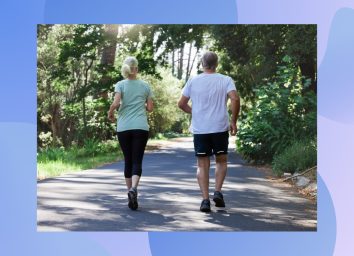Walk to This One Song If You Want to Live Longer, Says Top Doctor

In 2018, researchers from the UK’s Ulster University published a study in the British Journal of Sports Medicine of more than 50,000 walkers that concluded that walking at a faster pace—or brisk walking—is linked with a much lower risk of heart disease and early death. What’s more, older people (those who are above 60 years in age) who picked up their walking pace experienced “a 53 percent” lower risk of dying from heart disease.
“Walking is already promoted as a cornerstone of health promotion but we believe this information on walking pace should be emphasized in public health campaigns to encourage people to incorporate a brisk-paced walk into their everyday lives,” Professor Marie Murphy, the dean of postgraduate research and director of the Ulster Doctoral College at Ulster University, said at the time. “Even if you only have a little free time, upping the speed of your walk and increasing your heart rate will improve your health.”
Recently, Dr. Murphy joined the BBC Radio 4 podcast “Just One Thing,” hosted by Michael Mosley, MD, to discuss the benefits of walking better for exercise and longevity, and the two health experts revealed several great takeaways for fitness walkers—including the one song that Murphy says is “perfect” for walking for weight loss and a longer life. Read on for some of the tidbits that may be interesting to you, and for some walking mistakes you should avoid, don’t miss The Dangers of Walking for Exercise, According to Top Experts.
Early Morning Walks Are Best
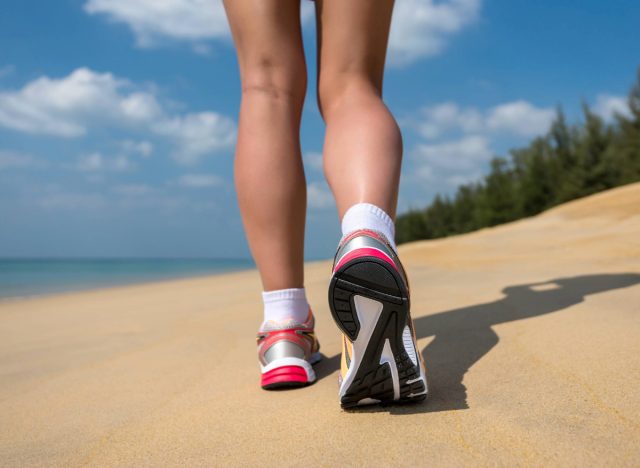
For his part, Mosley is an enormous proponent of early morning walks, and for a number of reasons. Not only is it a great way to start your day and boost your mood, but it’s also great for better sleep. He emphasizes that taking walks in the morning are crucial to sleeping better in the evenings.
“Light brings your body clock forward,” he says. “So in the evening, when you want to go to sleep, your body is ready for it. If you’re struggling to sleep at night, it could be because you’re not getting enough bright light in the morning.” And for some great ways to take your walking to a higher level, make sure you’re aware of the The Secret Trick for Walking for Exercise, According to Health Experts at Harvard University.
Your Body Clock Is More Complicated Than You Might Think
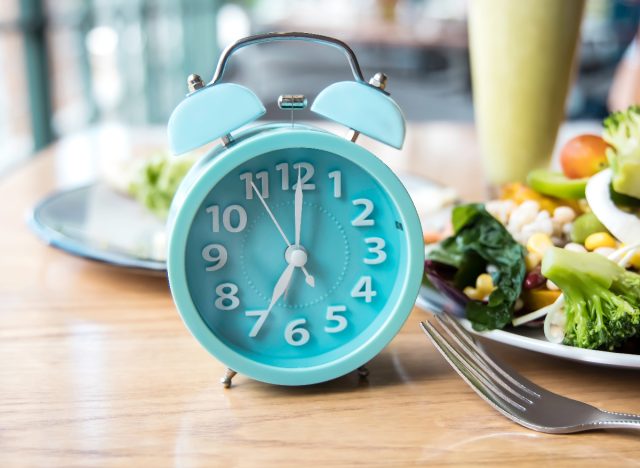
As many sleep scientists have shown, there’s a mysterious quirk to human beings’ circadium rhythm: Our biological clock actually runs for a bit longer than 24 hours. This is why, if you’re not disciplined about going to bed, you can find yourself drifting to sleep later and later.
“Because our clocks run longer than 24 hours, it’s important to reset your body clock every morning with exposure to the morning’s blue light, which our receptors are especially sensitive to,” says Mosley. “Light helps to reset our internal body clock. Exposure to light also suppresses the production of melatonin, the hormone that encourages us to go to sleep.”
But What If You’re Not a Morning Person?

“If you’re not an early morning person, just go out for a morning walk within two hours of getting up,” advises Mosley. For other ways to increase the intensity of your walks, see Why This Crazy-Popular Walking Workout Totally Works, Say Experts.
Why Your Walks Should Be Faster
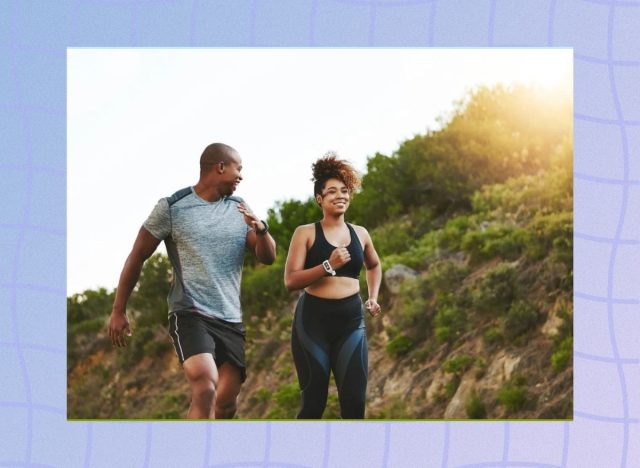
Murphy said that brisk walking is important to reap the benefits, and advises you to get at least “30 minutes of brisk walking every day.” She also notes that walking can be an even better exercise than running because you can do it more often during the day. If you walk in the morning, at lunch, and later in the evening, you’ll be interrupting your sitting “and getting your circulation going and switching your brain on.”
Here’s the Perfect Brisk-Walking Song
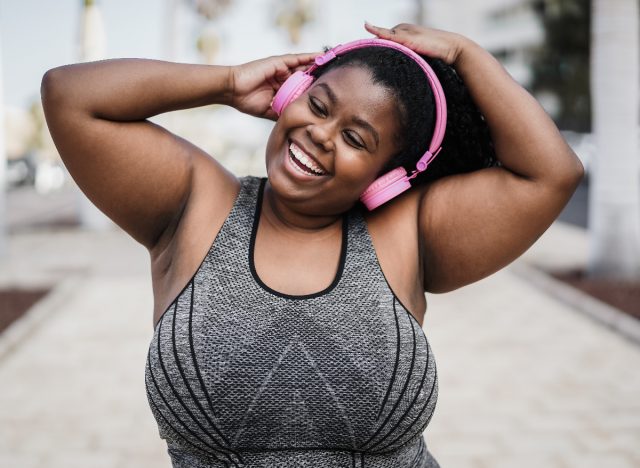
While Mosley prefers to walk to “Staying Alive” by the Bee Gees, Mosley said he can do better. “’I’ve Gotta Feeling,’ by the Black Eyed Peas, is an optimal BPM [beats per minute]” for brisk walking, she said. For the record, “I’ve Gotta Feeling” clocks in at 128 beats per minute. And for some reasons why you should definitely be walking more, read about The One Major Side Effect of Going for a Single 1-Hour Walk, Says New Study.
